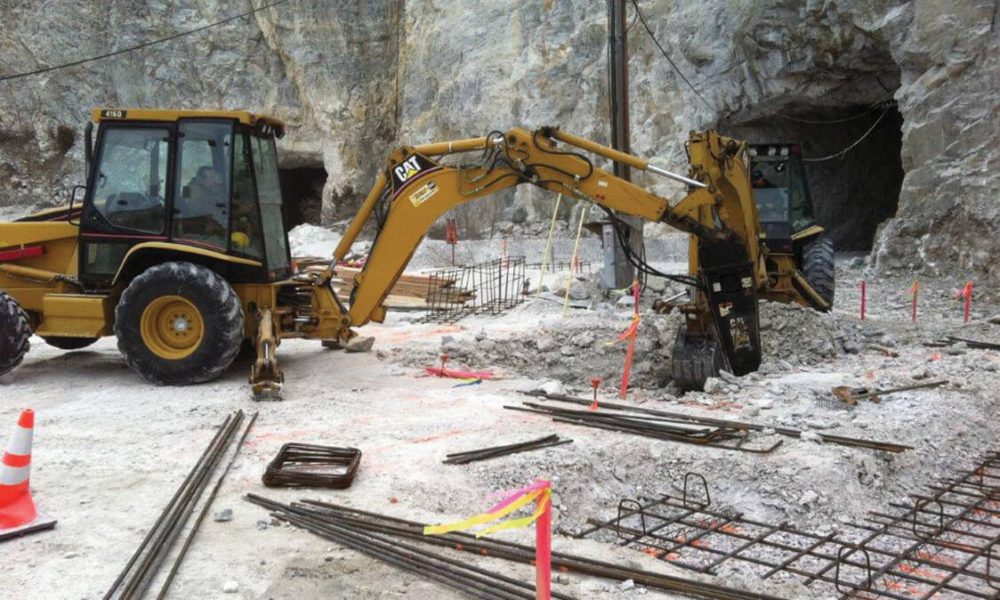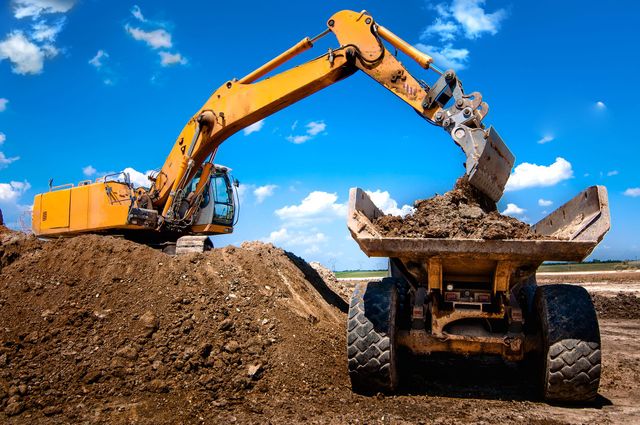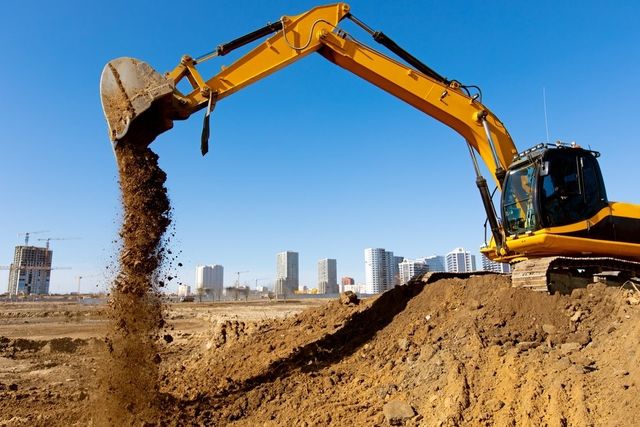Budget Friendly Lancaster Excavation - High Quality Excavation at Competitive Prices
Budget Friendly Lancaster Excavation - High Quality Excavation at Competitive Prices
Blog Article
Thorough Expedition: The Scientific Research Behind Superior Excavation Practices
The world of excavation techniques is a domain name where scientific research links with craftsmanship to uncover the secrets concealed below the earth's surface area. From old hand tools to modern-day hydraulic excavators, the advancement of excavation methods has been a testimony to human resourcefulness and technological developments. Nonetheless, what really establishes exceptional excavation practices apart is a deep understanding of geological principles, paired with the usage of advanced tools and methodologies. By exploring the science behind these practices, we can uncover the keys that exist beneath our feet and value the accuracy and experience that enter into every dig.
Evolution of Excavation Techniques
Throughout history, the development of excavation strategies has played a vital function beforehand construction methods and historical discoveries. From the rudimentary tools utilized by our ancestors to the sophisticated machinery employed in modern times, the progression of excavation approaches has dramatically changed exactly how we approach numerous jobs.
In ancient times, manual work with standard tools such as wheelbarrows, pickaxes, and shovels was the key technique of excavation. This labor-intensive procedure restricted the deepness and scope of excavations, frequently leading to slow-moving progress and restricted accessibility to specific websites. However, as people advanced, so did the tools and techniques utilized for excavation.
The Industrial Revolution marked a turning factor in excavation techniques with the introduction of steam-powered machinery. In contemporary times, modern technology plays a crucial role in excavation, with improvements like GPS systems, drones, and 3D scanning boosting accuracy and efficiency in the field.
Role of Innovation in Excavation

The combination of advanced technology has actually essentially reinvented the area of excavation, improving precision and effectiveness to unprecedented levels. Among the crucial technical developments that has substantially impacted excavation practices is the usage of general practitioner systems. These systems enable specific mapping of excavation websites, making it possible for operators to properly situate underground energies and frameworks. Furthermore, using telematics in excavation devices has actually made it possible for real-time monitoring of equipment efficiency, causing positive upkeep and raised functional productivity.
In addition, the introduction of 3D modeling and simulation software application has structured the preparation procedure for excavation jobs. Operators and designers can currently visualize the entire excavation procedure prior to beginning, maximizing and recognizing possible difficulties operations. In combination with this, the application of drones in excavation tasks has actually helped with airborne studies, volumetric dimensions, and website assessments with unparalleled speed and accuracy.
Geological Concepts in Excavation
An understanding of geological concepts is important for ensuring the architectural stability and stability of excavation sites. Geological variables play a critical duty in identifying the expediency and security of excavation projects (septic ohio). One crucial geological concept to consider is the type of dirt or rock existing at the website. Different dirt kinds, such as clay, sand, or crushed rock, have varying degrees of security and call for different excavation methods. Cohesive soils like clay may require extra assistance to protect against collapses, while sandy soils might be susceptible to erosion during excavation.
Additionally, the geological framework of the location, consisting of faults, cracks, and rock formations, need to be carefully examined to recognize prospective risks and challenges. Digging deep into near mistake lines or unpredictable rock developments can lead to instability and possible hazards. By carrying out comprehensive geological studies and analysis, excavators and engineers can establish methods to minimize dangers and make sure the successful conclusion of excavation tasks. Ultimately, including geological principles right into excavation methods is essential for accomplishing safe, effective, and lasting outcomes.

Latest Tools for Excavation
In the realm of excavation techniques, contemporary advancements in devices have transformed the performance and accuracy of excavation processes. These drones can supply comprehensive aerial surveys of excavation sites, using real-time information on topography and prospective threats.
An additional cutting-edge device obtaining appeal is the implementation of 3D printing technology for producing custom-made excavation devices. This allows for the manufacturing of specialized tools that i was reading this are tailored to the certain demands of a task, increasing performance and lowering downtime.
Additionally, improvements in products science have resulted in the advancement of more powerful and extra durable excavation devices. septic ohio. Tungsten carbide-tipped excavator add-ons, as an example, offer exceptional efficiency in difficult ground conditions, improving performance on-site
Scientific research's Effect on Excavation Practices

Additionally, developments in materials science have resulted in the creation of stronger, a lot more sturdy excavation devices and tools. The use of composite products in shovels and miners has actually boosted their efficiency and long life, ultimately raising productivity on excavation websites. Additionally, clinical research on dirt mechanics and geotechnical engineering has supplied important understandings right into dirt actions, permitting excavation specialists to make enlightened decisions regarding excavation techniques and dirt stabilization techniques. In general, scientific research proceeds to drive advancement and improvement in excavation practices, making excavation jobs a lot more effective, cost-effective, and lasting.

Conclusion
To conclude, the development of excavation techniques has been considerably influenced by advancements in technology and a much deeper understanding of geological concepts. The current devices and equipment used in excavation have actually improved effectiveness and precision in the my company field. The application of clinical expertise has dramatically improved excavation methods, leading to extra effective and lasting techniques for excavating various sorts of products.
In the world of excavation methods, modern developments in devices have actually changed the efficiency and accuracy of excavation procedures. By leveraging clinical concepts, the excavation industry has been able to Get More Info dramatically improve effectiveness, precision, and security in excavation procedures. GPR enables excavation groups to non-invasively scan and map subsurface structures, energies, and possible dangers, enabling them to plan excavation projects with greater precision and decreased danger of crashes.
In addition, clinical study on soil technicians and geotechnical design has actually supplied useful understandings into dirt behavior, allowing excavation experts to make informed decisions relating to excavation techniques and soil stablizing strategies. In general, scientific research proceeds to drive advancement and renovation in excavation methods, making excavation jobs more effective, cost-efficient, and lasting.
Report this page